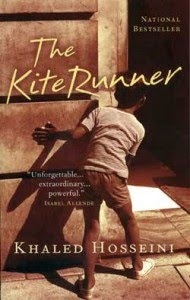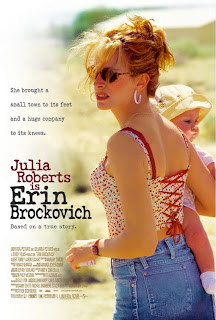 “Deck the halls with boughs of holly
“Deck the halls with boughs of hollyFa-la-la-la-la, la-la-la-la'Tis the season to be jollyFa-la-la-la-la, la-la-la-la
Don we now our gay apparel
Fa-la-la, la-la-la, la-la-la.
Troll the ancient Yule-tide carol
Fa-la-la-la-la, la-la-la-la.”
(Deck the halls)
We all know this song, at least from the Disney shows they show on TV in Norway during Christmastime. However, some people do not find Christmas jolly at all. Many people around the world have a hard time making ends meet, even more thinking of Yule-presents. For these people, Christmas can be really stressful and nerve wrecking.
But of course, many people have a much harder life altogether. In Africa, HIV and AIDS are common diseases. Deceases strike, also during the holidays, so there is no difference between Christmastime and other parts of the year. People in these continents are poor, and barely educated. The hygienic conditions are bad; making diseases spread fast trough polluted drinking water. These people don’t care about Christmas presents, but how to survive the coming year. In the western parts of the world, we use millions and millions of dollars to buy presents. Still, the question to ask ourselves is this, what if some of this money went to charity?
The Killers, a sensation
Every year si
 nce the Killers got together, they have made a Christmas single, where every single dollar of their income goes to the Global Fund to fight AIDS in Africa. They started this in 2006, with their single A great big sled. This single was in cooperation with Toni Halliday. In 2007, they released Don’t Shoot me Santa. In 2008, they released Joseph, Better you than me, together with Elton John and Neil Tennat. In 2009, they published ¡Happy Birthday Guadalupe! This single was also a cooperation project, but this time with Wild Light and Mariachi El Bronx. In 2010, they published Boots, and all the income from these singles has been given to charity, as mentioned earlier.
nce the Killers got together, they have made a Christmas single, where every single dollar of their income goes to the Global Fund to fight AIDS in Africa. They started this in 2006, with their single A great big sled. This single was in cooperation with Toni Halliday. In 2007, they released Don’t Shoot me Santa. In 2008, they released Joseph, Better you than me, together with Elton John and Neil Tennat. In 2009, they published ¡Happy Birthday Guadalupe! This single was also a cooperation project, but this time with Wild Light and Mariachi El Bronx. In 2010, they published Boots, and all the income from these singles has been given to charity, as mentioned earlier.The Killers is a very acknowledged band, with many fans all over the world. Therefore, I think this act is even more touching, because they could have earned a lot on these singles. Another prospect of it is that these songs are very well planed and thought trough, which make them great hits. Giving the income of such big successes as these is a big-hearted action. One person can not change the world by himself, but together we can make a difference. I believe that actions like this, and using ones talents to change another human's life for the better, is really kind. But, isn't that what Christmas is all about?Doing something as selfless as this? If everyone started to act upon a greater good, I think we can make a difference together. Why not start by listening to the Killers, Boots? Let us hope the Killers will keep this tradition alive, and that we get to hear many great, new songs from them in the future.
Marry Christmas, and a Happy new year to you all!
If you want to see the video made for Bo
ots, use the link below. Every time it is showed, 5$ dollars is donated to the Global Fund to help fight AIDS in Africa.

The complete lyrics for Deck the halls:
Picture of Mickey Mouse & friends:
Picture of the cover for Boots:
Picture of the Killers:







 contact with the lawyer Edward L. Masry. He agrees to offer her a job. On one of her trips searching for information, she visits a family in Hinkley who have many problems and are very sick. When she starts to investigate the case, she finds out that the company serving the Hinkley area with water, PG&E are using a very poisonous material, called Hexavalent Chromium. This causes a lot of diseases, such as cancer, decreased immune system, higher rate of miscarriages and so on. The people exposed to these threats, has no idea about their water being highly toxicant, and when Erin starts her investigation, many of her clients get very frightened.
contact with the lawyer Edward L. Masry. He agrees to offer her a job. On one of her trips searching for information, she visits a family in Hinkley who have many problems and are very sick. When she starts to investigate the case, she finds out that the company serving the Hinkley area with water, PG&E are using a very poisonous material, called Hexavalent Chromium. This causes a lot of diseases, such as cancer, decreased immune system, higher rate of miscarriages and so on. The people exposed to these threats, has no idea about their water being highly toxicant, and when Erin starts her investigation, many of her clients get very frightened. is treading. The town got into a financial crisis, so they had to think in a new way to get enough money to survive. They found a solution quite remarkable for their time: they decided to expand their customers from a domestic clientele, to a network of customers around the world. He uses this little story to illustrate that in time when we are in need of change, we have to widen our gazes and think in a more global way to make the world develop. If you connect this back to the term of teaching, I think many of you would know that this lecture mainly is about the use of computers and the internet in teaching and studying.
is treading. The town got into a financial crisis, so they had to think in a new way to get enough money to survive. They found a solution quite remarkable for their time: they decided to expand their customers from a domestic clientele, to a network of customers around the world. He uses this little story to illustrate that in time when we are in need of change, we have to widen our gazes and think in a more global way to make the world develop. If you connect this back to the term of teaching, I think many of you would know that this lecture mainly is about the use of computers and the internet in teaching and studying.


